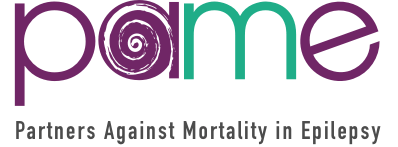2024 PAME Conference
Family Day – December 4, 2024
PAME Conference – December 5, 2024
The Sheraton Grand Los Angeles
711 South Hope Street
Los Angeles, CA 90017
The PAME Conference is the partnership’s flagship event and occurs in advance of the Annual AES meeting each year. PAME partners play an important role in its planning and in dissemination of conference proceedings to patients, families, researchers, clinicians, and others. PAME meetings are scientifically rigorous and informed by the experiences of people impacted and bereaved by epilepsy. They are cross-sectoral in nature and include updates and discussion on the latest basic and clinical research, as well as directions in awareness and education. While SUDEP remains a thrust of the conference, other causes of mortality continue to be elevated. PAME maintains a special focus on younger investigators and highlights their work through a competitive abstract selection process.
Family Day is an afternoon session designed to support bereaved members through building community, providing education, and identifying engagement opportunities. Participants can expect to hear personal stories and learn about advocacy initiatives aimed at bringing about positive changes. All bereaved individuals, professionals, and advocates are welcome to join us as we hear from those who have researched, studied, or experienced loss in their own lives. A detailed agenda is coming soon.
Planned agenda for Thursday, December 5th includes:
Keynote Speaker: Libby Boyce
Opening Plenary: All-cause mortality: Recognition to Drive Early Intervention
Breakout Sessions:
- SUDEP models, are we there yet?
- Mortality Legislation: Improving risk disclosure & death certification at the state level, case studies.
- Neurodegeneration across the life span, dementia and metabolic encephalopathies – seizures and premature mortality
- Devices, where are we now and where are we going?
Closing Plenary: State of SUDEP Innovation
Registration opens in August. More information will be posted as it becomes available.
Interested in supporting the conference? View this document for more information or email PAME@aesnet.org.

